Resell Web Hosting is an effective way for you to start your own web hosting company.
You can become a reseller just like other hosts but since you don’t have the expenses of buying servers, employing technical staff, and carrying out marketing campaigns you can maintain lower prices than them.
Of course, there are some cons if you compare it with dedicated or virtual hosting (more about advantages/disadvantages here ).
This article is specially created to help all those who want to start their own reseller business, so read carefully before starting!

What Is Reseller Hosting?
Reseller Hosting is an arrangement where one web hosting company (the host) sells web space and bandwidth to other companies or individuals (the resellers).
The host reseller gives the accounts for resale at a discounted rate, usually 50-75% off.
Since you’re getting such a good deal, you should take into account that the primary host will dictate your business policies and procedures.

For example, they’ll tell what kind of advertisements are allowed on your site and what products/services you may offer.
You can learn more about these restrictions here.
It’s very important to choose a reliable and professional primary host since if something goes wrong (website disabled, customers unhappy, etc), it will reflect directly on your company image as well as sales.
How Does Reseller Web Hosting Work?

Reseller hosting includes two main elements: the initial signup process, and maintaining reseller accounts.
To become a reseller you need to find a web hosting company.
Signing up is easy, however, some hosts require 2-5 years old companies with positive reviews from other customers/companies.
Since there are thousands of web hosts on the market, don’t rush yourself when choosing one. Carry out some research and select the most appropriate option for your requirements.

Once you sign up, you’ll receive an ID (personal or company name) and password so that you can start creating reseller accounts on the very same day.
Creating Reseller Accounts is easy, but some hosts allow their customers to do so directly while others don’t.
Keep in mind that most of the time, using your personal account to create reseller accounts might result in restrictions regarding disk space/bandwidth (i.e., you get less than other resellers).
Key Reseller Hosting Features
With a reseller account, you’ll be able to create your own packages, set up a billing system for your clients, and offer discounts.
Some hosts even provide you with free scripts that will allow you to run a site just like the primary host’s – eCommerce sites, blogs, forums – anything!
When choosing a web hosting company remember about the following features: Unlimited Bandwidth/Disk Space – Make sure it includes unlimited bandwidth and disk space so you’ll never have any problems.
Control Panel – At least the most popular ones such as cPanel or Plesk should be included in order to easily manage reseller accounts.
Billing Softwares – Most hosts offer their own payment processing software but if yours doesn’t then third-party software may work better with your clients (and save you some money).
Should You Get Into Web Hosting Reselling?
Nowadays, the competition among hosting companies is high and that’s not a bad thing.
The variety of packages, attractive prices, free bonuses/discounts offered by hosts, as well as their reputation will help you choose what’s best for your business.
Follow the steps and you’ll be able to start your own web hosting reseller business.
Step 1: Choose A Reseller Web Hosting Partner.
First of all, you’ll need to find a good web hosting partner.
You can’t just go out there and buy reseller accounts from any host that comes your way.
Pick the one that will suit your needs most.
For example, if they have cPanel included in their service you won’t have to spend extra money on this software so it’s definitely worth considering!

Make sure you read reviews about each company before making up your mind.
If possible, contact previous/current customers so you can hear their personal opinion about the primary host.
You might also want to check for complaints or negative reviews (if any).
Since even the best hosts make mistakes sometimes and don’t always handle complaints in the proper manner (although this should never happen).
Step 2: Build Your Hosting Services.
If your host doesn’t allow you to create reseller accounts yourself then the only way is to contact their support.
They will help you set everything up, so it won’t take too much time or effort on your part.

However, if they don’t provide you with access to billing software (pricing plans) you might want to consider getting in touch with a third-party provider (like WHMCS).
That way you’ll be able to create and manage all of your client accounts in one place.
Step 3: Set Your Prices And Configure The Billing System.
Once you have everything set up you can start offering hosting services to your customers.
It’s important that the price is low enough in order for people to contact you instead of their primary host (and switch).
However, don’t fix it at a too low price. Otherwise, your service will no longer be profitable.

Keep in mind that you need to cover all of your expenses and make money on top of that actually.
Have clear pricing pages where people can see all the discounts/bonuses included with each package.
Also, make sure they know what kind of billing system they’ll get access to since some hosts provide their resellers with their own payment processing software while others require third-party software like WHMCS or any other tool available.
Step 4: Support Your Customers.
Even though you should already have a lot of experience in this field if you’ve resold web hosting before, always help your customers and be as quick as possible.
Make sure they know that you’re not the primary host and that if something goes wrong with their account or website you’ll do everything possible to help them out.
However, if it’s an issue related to another company (like downtime due to server problems) then there’s little you can actually do except suggest other services (in case the problem is really severe).
What Are The Best Reseller Web Hosting Services?

After doing some research, we came up with a list of the best reseller web hosting providers in 2022.
As you already know by now these:
1. A2 Hosting.

A2 Hosting was launched in 2003 and is well-known as the industry’s first cloud-based hosting service.
The company operates by providing shared and reseller web hosting services.
With a2hosting, you’ll be able to host unlimited websites and all data centers are monitored 24x7x365.

All their internet packages include a 30-day money-back guarantee and a 99.9% uptime guarantee across the board.
A2 Hosting offers different types of hosting, from Shared to Dedicated servers, meaning you can find a package that fits your needs regardless of what size your business is.
2. AccuWebHosting.
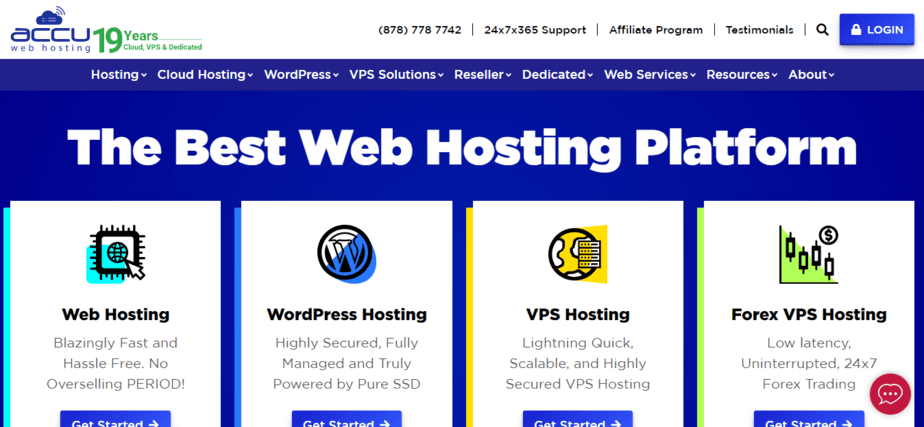
It’s one of the most reliable web hosting services available, which ensures business owners that their sites are secure and protected.
It offers both Windows and Linux accounts so you can choose whatever you want depending on your preferences.
AccuWebHosting is an ICANN accredited registrar, meaning it has all the necessary accreditation to provide domain registration for .com/.net/.org/.biz or any other generic top-level domains (TLD).

They also offer SSL certificates along with the internet packages they provide, giving clients more security options than ever before.
Plus, their support team is always readily available to help with any questions/problems you might have regarding your account or website.
3. Bluehost.

Bluehost is a popular web hosting service that mainly focuses on providing assistance with WordPress and Joomla, meaning people who’ve created a website using one of these two systems can take advantage of their technical support team.
Bluehost has been around since 2002 and was recently acquired by the Endurance International Group (EIG), another well-known company in this industry.

Bluehost offers all kinds of hosting services for individuals as well as businesses across the globe, which is why it’s ranked as one of the top 2 web hosts within this niche.
The internet packages they offer include some basic features such as unlimited disk space, bandwidth, email addresses, FTP accounts, etc.
4. GoDaddy.

GoDaddy is the world’s largest domain provider and one of the leading web hosting companies in 2021.
It was launched way back in 1999 and has expanded rapidly ever since, making it one of the most popular brands worldwide no matter which industry we’re talking about.

With GoDaddy, you can either register a new domain or transfer your existing website from another registrar to their servers (30-day free trial included).
Their internet packages include unlimited disk space and bandwidth for all shared accounts, while their dedicated server plans come with Raid-10 storage devices for data redundancy purposes.
5. HostGator.

HostGator is a famous web hosting brand that operates mainly within America due to its reliable infrastructure and fast speeds.
The company provides shared and reseller web hosting plans only (no dedicated or cloud options), but it does offer some interesting features such as daily backups, a 99.9% uptime guarantee, unlimited email accounts/mailing lists, etc.

HostGator mainly focuses on small- and medium-sized businesses and has had more than 14 million customers so far.
All shared and reseller packages include a 30-day money-back guarantee, which is something you won’t see offered by many web hosts today.
6. Hosting24.

Hosting24 is one of the newest web hosts within this industry, but that doesn’t mean it’s not worth taking into account when looking for a new provider.
They offer both dedicated and shared hosting plans with different pricing options depending on your specific needs.
Their internet packages are great for people who want to start their own website or blog, as they come with a free domain name along with daily backups, SEO tools for faster loading speeds, and so much more.
7. HostPapa.

HostPapa is another web hosting service that’s here to stay, which might be the main reason why so many people are willing to try it out in the first place.
The company mainly focuses on creating reliable websites for individuals and businesses with comparatively low costs, but this doesn’t mean they don’t have enough resources or experience when it comes to their services.

All shared accounts come with daily backups for added security, while dedicated servers enjoy a 99.9% uptime guarantee across all locations worldwide.
HostPapa also offers plenty of additional features such as SEO tools, email accounts/mailing lists, website builders, etc., with prices starting at $4/month (for 6 GB RAM + 60 HDD).
8. Hostwinds.
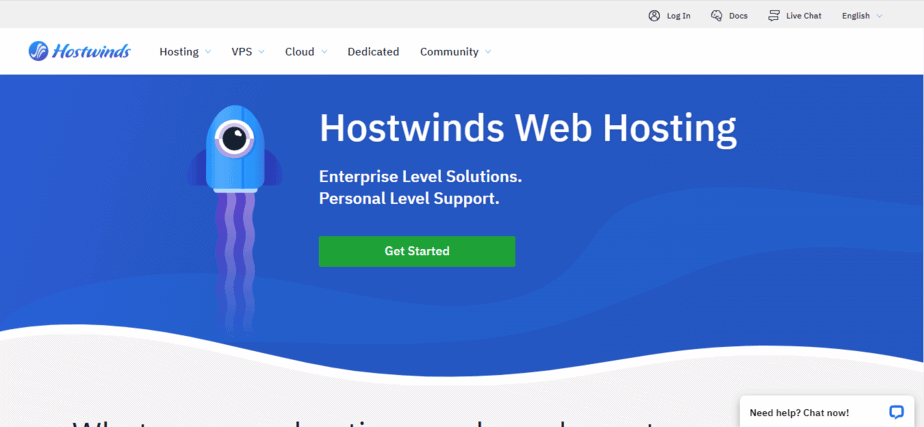
Hostwinds is another popular web hosting service that has been around for more than 10 years and offers several different internet packages to help you get started with your own website or blog.
It’s one of the few companies today that still lets you register a custom domain name when signing up, but it will cost an extra fee once this trial period ends.

All shared accounts come with daily backups, meaning your site or blog can be restored within minutes if something happens.
You also get unlimited disk space and bandwidth along with free email accounts/mailing lists, etc., which are all great for people who need more resources when starting out in this industry.
9. InMotion Hosting.
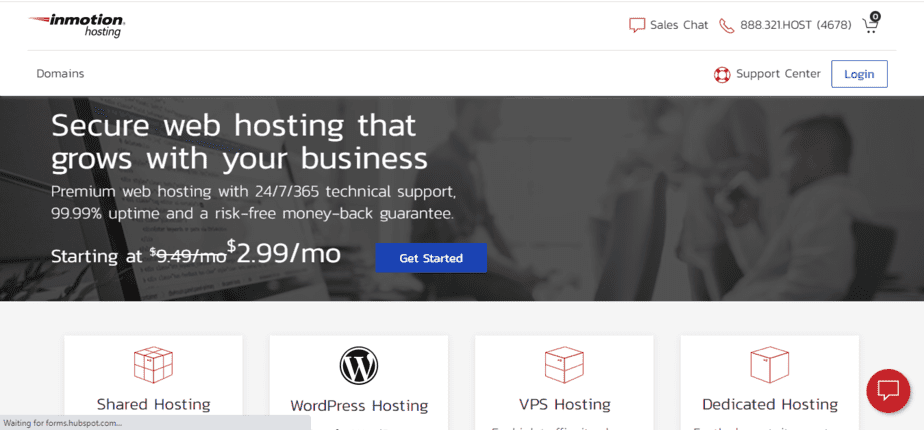
InMotion is one of the most well-known web hosting providers out there, which is why it’s only natural that they end up on this list.
With InMotion, you can either register a new domain or transfer your existing website from another content management system (CMS) to their servers.
10. InterServer.
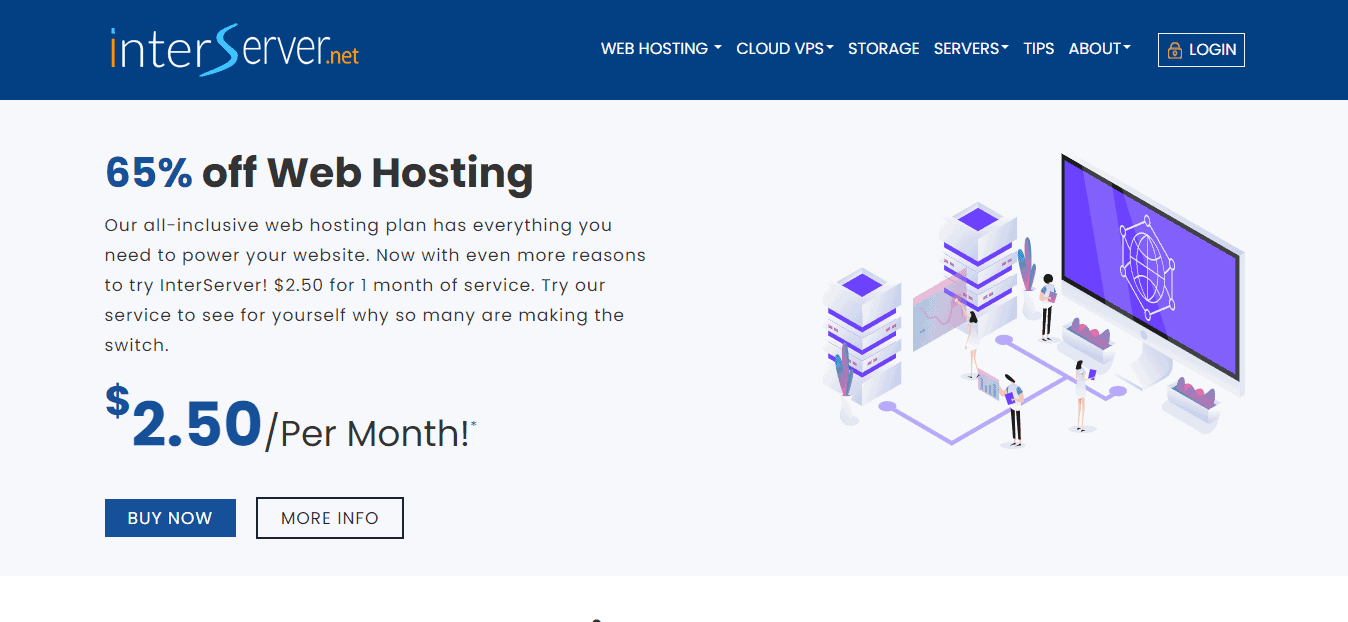
InterServer might not be as famous as some of the other web hosting companies today, but it still manages to offer some amazing services regardless of that fact.
The company offers both shared and reseller accounts with unlimited disk space and bandwidth, daily backups for all websites hosted on their servers, instant provisioning (1-minute account setup), etc.
11. Kamatera.

If you’re looking for the fastest hosting company out there, then you might want to check Kamatera’s internet packages and see if they can meet your requirements.
Shared and reseller accounts come with unlimited disk space and bandwidth along with free website builders, email marketing tools, etc., which are all great for beginners who need more resources when starting their own online business.
12. Liquid Web.

Liquid Web is a market leader in Managed Hosting for mission-critical applications and sites.
When uptime and dependability are essential, Liquid Web is the firm to choose.
They offer a wide range of services including Managed Hosting, cloud hosting, dedicated servers, email hosting, SSL certificates, and more.
13. ResellerClub.
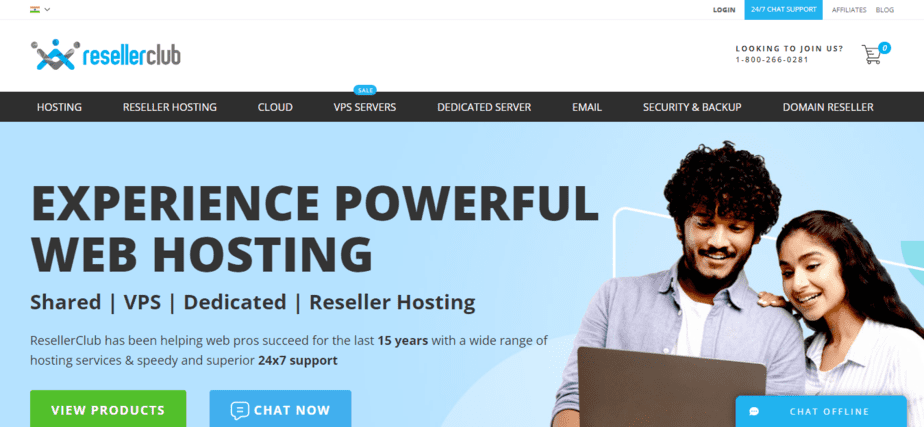
ResellerClub provides cost-effective, reliable, and secure cloud web hosting solutions.
They have cutting-edge data centers in India, USA, UK, Switzerland & Netherlands.
All their servers are high-end servers with SSD drives for extreme performance.

ResellerClub also offers free-of-cost tools like domain registration, SSL certificates, and web site builder tool.
Best of the reseller club also offers its brand of Reseller Hosting named R-HUB.
14. SiteGround.

If you’re in the hosting field, then obviously you heard the name of siteground before.
SiteGround is a web hosting company that since 2004 provides services such as shared, reseller, and dedicated servers with high-end hardware to ensure maximum speed of websites.
It was one of the first companies to release Cloud Hosting in 2010, where its infrastructure is being served from multiple cloud platforms to ensure 99.9% uptime of your websites.
Conclusion.
In this article, we have covered some of the best web hosting companies in 2022.
All these companies have their own features and services to offer you.
If you would like to add your company to this list then feel free to do so by adding their platform.
Before you begin reselling web hosting, however, create a flawless resale showcase for the finest resell hosting suppliers in the market.
Hope you liked this blog post and found it useful.







